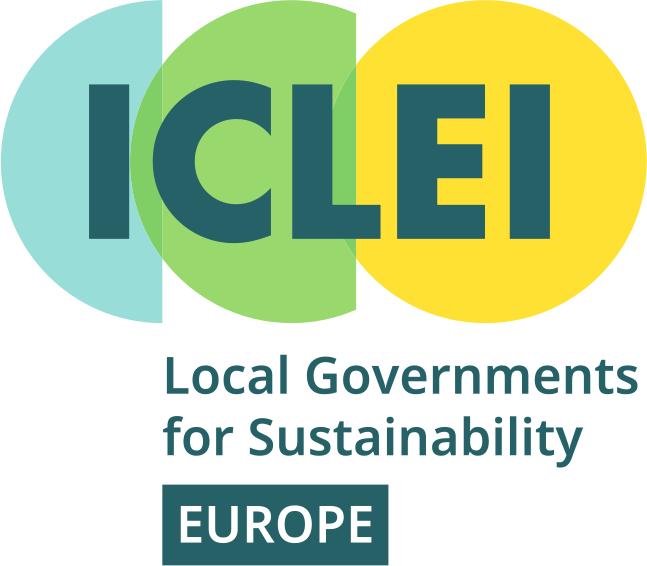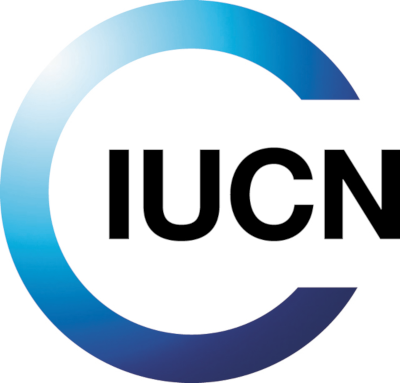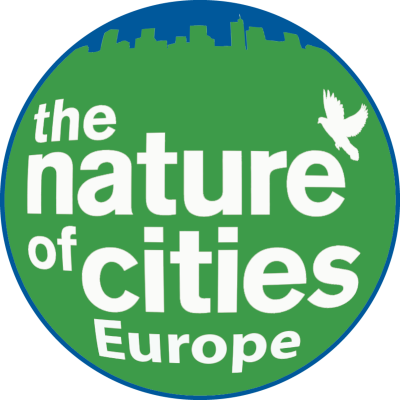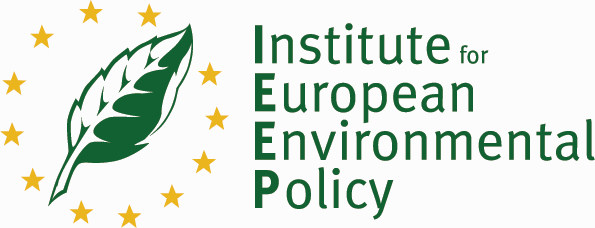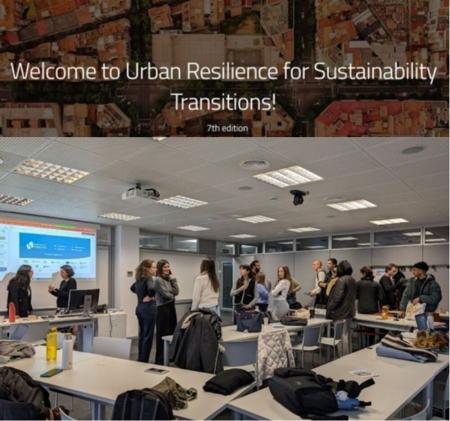
This week, Daniela Rizzi, coordinator of NetworkNature, discussed the potential of nature-based solutions with participants of the International Master in Urban Resilience for Sustainability Transition at the Universitat Internacional de Catalunya in Barcelona. The session formed part of the programme’s ongoing efforts to explore innovative approaches to urban resilience, bringing together more than 40 leading professors from the Urban Resilience Research Network to engage with students on key sustainability challenges and opportunities.
The master’s curriculum covers a broad range of topics related to urban resilience, including theoretical foundations, critical infrastructure, community resilience, and nature-based solutions. Each module combines theory with practical tools such as software and methodologies, best-practice case studies, and insights from international partners, including enterprises, NGOs, and foundations.
Key insights on NbS and the role of NetworkNature
The presentation provided an in-depth look into the role of NetworkNature in advancing nature-based solutions by fostering knowledge exchange, building capacity, and facilitating cross-sector collaboration. The discussion highlighted how nature-based solutions have become a critical component in addressing pressing urban challenges such as climate adaptation, biodiversity loss, and social inclusion. They are key to achieving systemic resilience across urban and peri-urban landscapes, tackling issues related to climate change, water management, waste, and food systems.
A key focus of the discussion was the importance of standardisation in ensuring the effective and credible implementation of nature-based solutions. Establishing standards can help overcome existing challenges such as limited policy integration, fragmented funding, and knowledge gaps. Standardisation provides a pathway to scaling up solutions while ensuring their long-term effectiveness and alignment with global sustainability goals.
The session also introduced key NetworkNature policy themes, which provide strategic guidance for mainstreaming nature-based solutions into various policy areas. Participants gained insights into the work of the EU NbS Task Forces, which focus on advancing research, innovation, and implementation of NbS across Europe, and the EU NbS Hubs, which foster regional collaboration and knowledge exchange to address local challenges and opportunities.
Despite existing challenges, significant opportunities were highlighted for expanding the application of nature-based solutions. With growing global commitments to biodiversity-positive practices, there is increasing momentum to drive a nature-positive economy through entrepreneurship and innovation. Nature-based solutions contribute to climate resilience, enhance critical ecosystem services such as water management, carbon sequestration, and air quality improvement, and provide long-term social and economic benefits.
However, persistent barriers such as resistance to change in traditional sectors and the need for long-term monitoring of nature-based solutions’ effectiveness were also identified as areas requiring further attention. Participants were encouraged to consider innovative approaches to overcoming these challenges, such as cross-sector collaboration and leveraging new financing mechanisms to support the implementation of nature-based solutions at scale.
A key focus of the discussion was the importance of standardisation in ensuring the effective and credible implementation of nature-based solutions. Daniela underscored how the establishment of standards can help overcome existing challenges such as limited policy integration, fragmented funding, and knowledge gaps. Standardisation provides a pathway to scaling up solutions while ensuring their long-term effectiveness and alignment with global sustainability goals.
Despite these challenges, Daniela highlighted significant opportunities for expanding the application of nature-based solutions. With growing global commitments to biodiversity-positive practices, there is increasing momentum to drive a nature-positive economy through entrepreneurship and innovation. Nature-based solutions contribute to climate resilience, enhance critical ecosystem services such as water management, carbon sequestration, and air quality improvement, and provide long-term social and economic benefits.
However, persistent barriers such as resistance to change in traditional sectors and the need for long-term monitoring of nature-based solutions’ effectiveness were also identified as areas requiring further attention. Daniela encouraged students to consider innovative approaches to overcoming these challenges, such as cross-sector collaboration and leveraging new financing mechanisms to support the implementation of nature-based solutions at scale.
Student engagement and key discussion points
The session was highly interactive, with students raising insightful questions about the practicalities and complexities of implementing nature-based solutions in urban contexts. One of the key points of discussion was how to navigate trade-offs. Adaptive governance and inclusive stakeholder engagement are essential to balancing environmental, social, and economic objectives. Addressing the challenge of greenwashing, the discussion underscored the importance of science-based indicators, robust monitoring frameworks, and transparency in reporting to ensure that nature-based solutions deliver meaningful benefits rather than superficial gains.
Students were also eager to explore the issue of equity, questioning who ultimately benefits from nature-based solutions and how inclusivity can be ensured. The importance of participatory approaches that empower communities and Indigenous leadership in the design and implementation processes was emphasised.
In addition to the discussion, students participated in an interactive session, using the NbS Case Study Finder from NetworkNature to explore real-world examples. Divided into four groups, they selected and analysed case studies, identifying opportunities and challenges for implementation. This collaborative brainstorming exercise encouraged students to critically assess different approaches and reflect on their applications. Each group later presented their insights in a short pitch, followed by an open floor for feedback and questions, fostering a dynamic and constructive exchange of ideas.
Towards a resilient and just future with NbS
The presentation reinforced the vital role of nature-based solutions in shaping a resilient and just urban future. Achieving this vision requires integrated approaches that connect ecological integrity with economic prosperity and social well-being. Cities and regions adopting nature-based solutions can benefit from enhanced ecosystem services, strengthened community resilience, and improved quality of life for all residents.
For the students of the International Master in Urban Resilience, the session provided valuable insights into the practical and strategic dimensions of implementing nature-based solutions. Equipped with new knowledge and perspectives, they are well-prepared to contribute to the advancement of nature-positive urban transformation in their future careers.
Resources on NbS: Shared with Students, Now Available to You
As part of the session, students of the International Master in Urban Resilience for Sustainability Transition received a curated list of valuable resources to deepen their understanding of nature-based solutions. We are pleased to share this collection with you, the reader of this blog post, to explore key materials, case studies, and insights that can support your journey in implementing and advocating for NbS.
- NetworkNature website: https://networknature.eu/
- Video: What are NbS? https://www.youtube.com/watch?v=TGuyMakgeVw
- Video: What Types of NbS Are There? https://www.youtube.com/watch?v=wQUXo-3_518
- Resources for better understanding of NbS: https://networknature.eu/networknature/nature-based-solutions
- Introducing the NetworkNature policy themes: https://networknature.eu/nn-themes
- NbS Policy Screening and Analysis of Needs and Gaps for 2024–2030: https://networknature.eu/product/31829
- Core action areas for European Research and Innovation (R&I) on Nature-based Solutions (NbS): https://roadmap.networknature.eu/
- NetworkNature Case Study Finder: https://networknature.eu/network-nature-case-study-finder
- Nature-based Solutions Hubs: https://networknature.eu/nbs-hubs
- Nature-Based Solutions Task Forces: https://networknature.eu/nbs-task-forces
- NbS and biodiversity: https://oppla.eu/product/23415
- Biodiversity-positive Design in Urban Areas with NbS: Approaches: https://networknature.eu/product/29462
- Biodiversity-positive Design in Urban Areas with NbS: Wildlife-friendly Areas, Conservation Sites, the Public Realm: https://networknature.eu/sites/default/files/uploads/d53-practitioners-package-2_1.pdf
- Biodiversity-positive Design in Urban Areas with NbS: Mobility Network, Green associated with Buildings, Vacant Plots, Brownfields: https://networknature.eu/sites/default/files/uploads/d53-practitioners-package-3_1.pdf
- NbS and climate mitigation: https://networknature.eu/nature-based-solutions-climate-change-mitigation
- NbS and sustainable communities: https://networknature.eu/product/32195
- NbS and microclimate regulation and air quality: https://oppla.eu/product/23418
- NbS and water quality: https://networknature.eu/nbs-benefits/improve-water-quality
- NbS and flood mitigation and coastal resilience: https://oppla.eu/product/23420
- Valorisation of NbS Projects: https://networknature.eu/product/22440
- NbS and public procurement: https://networknature.eu/sites/default/files/docs/ws-2-nature-based-economy/ki0220672ennen.pdf
- Results pack - 9 EU-funded projects: https://op.europa.eu/en/publication-detail/-/publication/5bd86975-084f-11eb-a511-01aa75ed71a1/
- The solution is in nature: https://networknature.eu/product/21849
- European Environment Agency: https://oppla.eu/product/22250
- Urban Biodiversity: Cultivating Support through Municipal Codes, by Biophilic Cities Network: https://netzerocities.eu/wp-content/uploads/2024/06/Policy-brief-Nature-Based-Solutions-Policy-Lab-2024-06-23.pdf
- The value of urban nature-based solutions, UK Green Building Council: https://networknature.eu/product/26381
- The vital role of nature-based solutions in a nature positive economy: https://op.europa.eu/en/publication-detail/-/publication/85aeb571-c69c-11ec-b6f4-01aa75ed71a1
NbS Catalogues
- Catalogue of NBS for urban regeneration, Labsimurb, Polimi: https://www.labsimurb.polimi.it/nbs-catalogue/
- UNaLab Technical Handbook of NBS: https://networknature.eu/nbs-resource/24951
- The URBAN GreenUP NBS Catalogue: https://networknature.eu/product/26099
- ThinkNature’s NBS Handbook: https://oppla.eu/product/19999
- Online URBiNAT NBS Catalogue: https://urbinat.eu/nbs-catalogue/
- Compendium of nature-based and ‘grey’ solutions, GrowGreen: https://networknature.eu/selecting-right-nature-based-solution-right-place
- NBS Catalogue, Ecologic: https://networknature.eu/nbs-resource/30501
- Nature4Cities: https://networknature.eu/groups/nature4cities
- A Catalogue of Nature-Based Solutions for Urban Resilience, World Bank: https://networknature.eu/nbs-resource/29771

